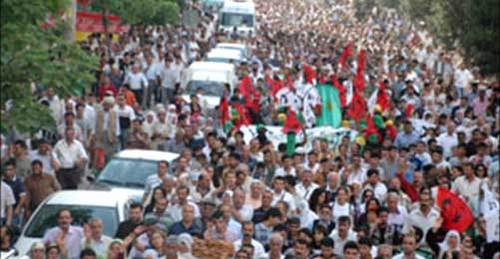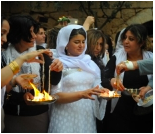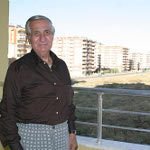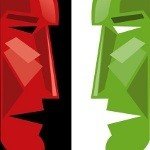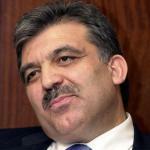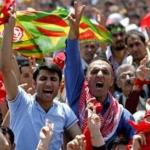A two-day Democratic Society Congress in Diyarbakır, the Kurdish-majority city in the southeast of Turkey, ended with a concluding declaration.
It was the third congress of its kind and attended by around 600 delegates, many from the Kurdish political movement.
Call to end operations
Hatip Dicle, former chair of the Democratic Party (DEP) and Diyarbakır MP for the pro-Kurdish Democratic Society Party (DTP), said in the statement read at Koşuyolu Park that the unilateral ceasefire declared by the armed Kurdistan Workers' Party (PKK) was an important opportunity. He called on the state and the government to stop military operations immediately.
Around 10,000 people joined the Peace March prior to the statement, shouting slogans in support of imprisoned PKK leader Abdullah Öcalan and dancing folk dances.
Dicle said that the congress had been used to create a "detailed road map" for a peace process.
The congress delegates called on a civilian constitution that lifted any discrimination against the languages, cultures and identities of Kurds and other people, as well as demanding an end to the obstruction of democratic politics.
The congress was attended by the DTP's chair Ahmet Türk, the party's MPs and 98 mayors, Süryani representative Yakup Gabriel, former State Minister Adnan Erkmen, Diyarbakır Protestant Church representative Ahmet Güvener, Feyzullah Deniz from the family of Shaikh Said, the leader of a considerable Kurdish uprising in 1925, Kemal Bülbül from the Alevi Union Federation, Yezidi representative İbrahim Biro, Abdullah Öcalan's brother Mehmet Öcalan, former MPs, academics, artists and writers.
Invited members of the Rights and Freedom Party (HAK-PAR) and the Participatory Democracy Party (KADEP) did not attend.
More courage needed
Speaking at the opening of the congress on Saturday, Ahmet Türk said, "It is not Kurds who are the reason or source of the deadlock." He criticised the government for a lack of "courageous approaches".
Emphasising that Kurds were insisting on a peaceful solution to the Kurdish question, he argued that Kurds had been treated as terrorists by the national and international public.
A report with suggestions for a solution to the Kurdish question will be given to President Abdullah Gül, political parties and NGOs. (EZÖ/EK/AG)




